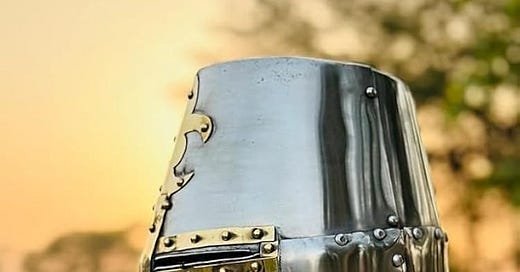The other day David Plouffe, Kamala Harris’s senior advisor, said that the race is tied and always has been. The 2-5 point poll fluctuations up and down are essentially meaningless. Harris is in a dead heat with Trump and Vance, who trade in fear and hate, and openly lie to their supporters and the press. Yet they really might win. Unless. If every last one of us who intends to vote for Harris shows up to vote, we could win. So I’m hoping for the best.
I don’t really understand how things are tied. It brings on a ragey panic in me, not gonna lie, as my children would say. Instead of ragey panic, though, I’m attempting to strike a detached level of curiosity with the whole thing, trying to trade gnawing dread for a mindful appreciation of life’s simple beauty. Bright autumn sunshine, honeycrisp apples, late season morning glories, delicious pizza with old friends. As I wait for election day’s reckoning, I’ll try to focus on these things instead of obsessively reading the NYT.
Who am I kidding with this aspirational concept of serenity; I am freaking the fuck out. And I will persist in this state of jangled bugout for weeks to come. Until we know who won. And don’t @ me with the “But will we ever know? Nov. 5 is just the beginning” crap. I can’t.
This is a really large country with an incredibly fragmented and unreliable media landscape. People where I live laugh at videos of Trump, the father of IVF, swaying back and forth and jerking around to The Village People. Meanwhile, 700 miles southwest of us an armed mob is harassing FEMA aid workers because they’ve been led to believe these people are dangerous swindlers. We go deeper into our polarized holes, and the corporations that own these media outlets get richer and richer. Seems we’re paying a high price for freedom of speech.
I phone bank Pennsylvania voters once a week, and occasionally get a Trumper on the line. The conversations are difficult, but one way I can always find connection is when I say that the media is utterly broken. Maybe burning American media to the ground is how we American citizens can once again find common ground. I’ll bring my torch if you bring yours.
Time to read a book
I realize that for most of you, fantasy is not a go-to genre. And I am aware that King Arthur and the Knights of the Round Table aren’t really the freshest of starting points. But hear me out.
The Bright Sword is an epic tale about Collum, a young man who wants to be a knight in King Arthur’s round table. He steals some armor and runs away from the horrible castle where he’s essentially an orphan, determined to join the round table. Upon arrival in Camelot, however, he discovers that King Arthur is dead and the surviving knights are drunk and defeated. And that’s just the first 30 pages or so. What follows are exciting quests, entertaining backstories, heroic battles, plenty of surprising twists, and a totally modern1 and original take on the men and women who we know from these old myths.
I was rooting for Collum from the start, charmed by his clumsy shyness and inexplicable idealism. Everything about his childhood should make him mean and cynical, not the courageous hero he’s fast becoming as the story progresses. The remaining knights are the B-team of the original legends, and Grossman gives each one a juicy quest or a vivid backstory. (Stars like Lancelot and Merlin have cameos, too.) With his lovely energetic writing, Grossman makes these hoary old myths relevant and moving. He uses this most threadbare of legends as a launching pad to ponder themes that are urgently relevant now–and maybe always were.
Theme pondering
What does it mean to be good? Why try? What do you believe in? What do you owe the world? What is your nation, exactly, and who is it serving? Grossman’s Arthurian England is a rickety place. The legacy of the long-gone Romans is complicated. They were invading colonizers but the English now in power have adopted many of their methods. Lots of people seem to be hedging their bets on who exactly to worship and how. After all, the pagan deities still hold sway—just ask Merlin and Morgan Le Fay. And then there’s all those Saxons who keep arriving on their shores, doubtless eating cherished British cats and dogs.
I acknowledge this might be a bit niche, and I’m a sucker for this stuff. I’ve loved the Arthurian legends since I saw The Sword in the Stone as a child. Then Excalibur as a teen. Then read The Mists of Avalon after college. Grossman is casually anachronistic and not at all precious about the source material. Case in point: the book opens with an epigraph from Monty Python and the Holy Grail. He makes the characters more heroic because they're so broken and human. As a reviewer on Goodreads said, “Everything sucks in Camelot, he tells us, but there are still adventures and miracles to be had.”
I like that approach, for Camelot and for the U.S. as well.
Naturally this means there’s a gay knight and one who identifies as male but was born female.


